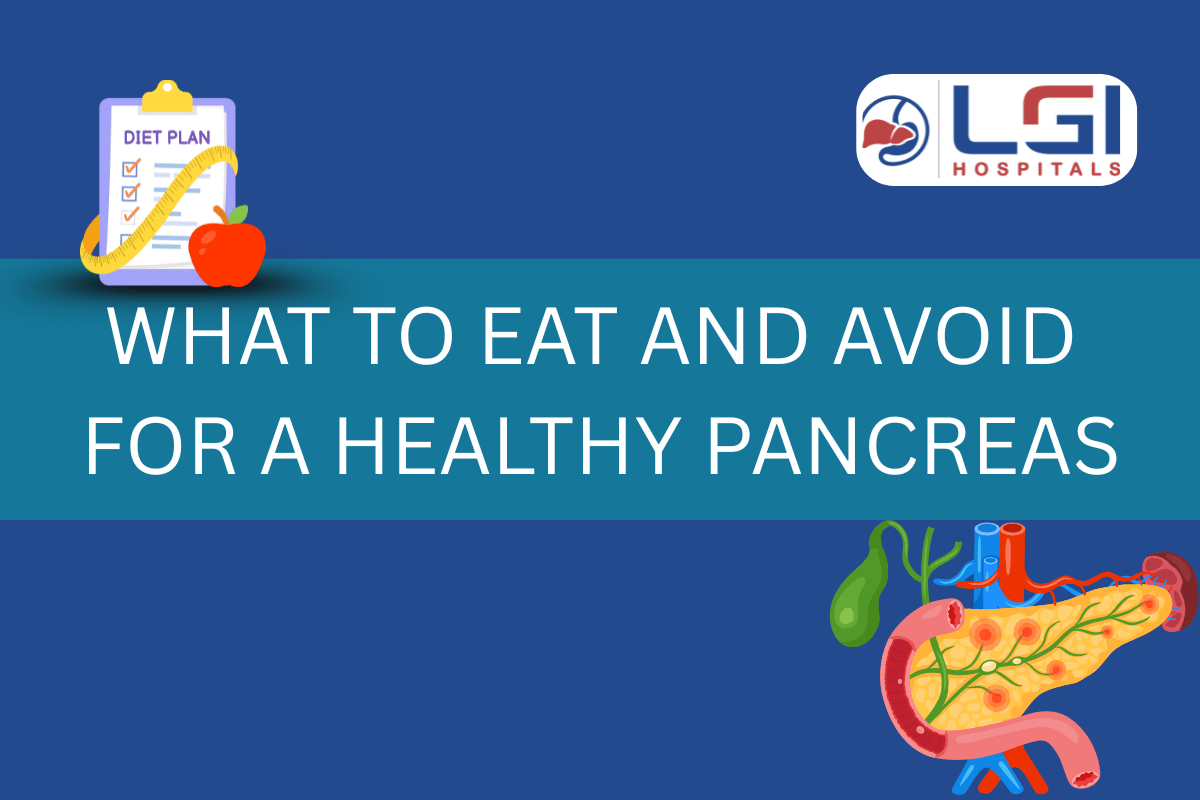Recovering from pancreatitis requires more than just medical treatment — it demands a carefully managed pancreatitis diet that supports healing and protects your pancreas from further strain. The right diet can reduce inflammation, improve digestion, and help you regain energy after an episode of acute or chronic pancreatitis.
In this guide, experts from LGI Hospitals explain what a pancreatitis-friendly diet looks like, how to plan your meals, and which foods to avoid for long-term pancreatic health.
Why a Pancreatitis Diet Matters
The pancreas plays a key role in digestion by producing enzymes that help break down food. When it becomes inflamed (a condition known as pancreatitis), those enzymes can start attacking the pancreas itself. This leads to pain, nausea, and poor nutrient absorption.
A well-balanced pancreatitis diet helps the pancreas rest, recover, and function more efficiently. It minimizes fat intake, provides easy-to-digest nutrients, and prevents additional inflammation.
Principles of a Healthy Pancreatitis Diet
- Low-Fat Intake:
Limit fat to less than 20 grams per day, depending on your doctor’s advice. Choose unsaturated fats like olive oil in small amounts instead of fried or greasy foods. - Small, Frequent Meals:
Instead of three large meals, eat five to six smaller ones throughout the day. This prevents enzyme overload and helps with digestion. - Hydration:
Drink plenty of water, coconut water, and clear soups. Avoid alcohol and sugary beverages, which can worsen pancreatic stress. - High-Protein Foods:
Include lean protein sources such as eggs, tofu, lentils, fish, and skinless chicken. Protein supports tissue repair after inflammation. - Complex Carbohydrates:
Choose whole grains like oats, brown rice, and whole wheat for sustained energy.
Foods to Include in a Pancreatitis Diet
- Steamed or boiled vegetables (carrots, beans, spinach)
- Fruits rich in antioxidants (apples, papayas, blueberries)
- Whole grains and cereals
- Fat-free dairy products like skim milk and low-fat yogurt
- Lean protein sources like pulses and grilled fish
- Herbal teas or warm water instead of caffeinated drinks
These foods are easy to digest and help reduce the workload on your pancreas while supporting recovery.
Foods to Avoid
Certain foods can worsen inflammation or trigger a pancreatitis flare-up. Avoid:
- Fried or greasy foods (pakoras, chips, fast food)
- Full-fat dairy products and butter
- Red meat and processed meat
- Sugary foods, bakery items, and sweets
- Alcohol and carbonated beverages
- Excessive caffeine (coffee, energy drinks)
Avoiding these items can significantly reduce the chances of recurring attacks and support long-term pancreas health.
Sample One-Day Pancreatitis Diet Plan
| Meal | Recommended Foods |
| Breakfast | Oatmeal with banana slices and low-fat milk |
| Mid-Morning Snack | Papaya or apple slices |
| Lunch | Steamed rice, boiled vegetables, and grilled fish or dal |
| Evening Snack | Herbal tea with roasted chana |
| Dinner | Vegetable soup and soft khichdi |
| Bedtime | Warm skim milk |
This plan provides balanced nutrition without overloading your digestive system.
Lifestyle Tips to Support a Pancreatitis Diet
- Eat slowly and chew your food well.
- Avoid alcohol completely, even after recovery.
- Exercise moderately to maintain a healthy weight.
- Keep your blood sugar levels under control.
- Stay consistent with your diet — sudden changes can upset digestion.
A pancreatitis diet isn’t just about restrictions — it’s about eating smart to give your pancreas the care it needs. With professional guidance and consistent healthy eating habits, most patients can lead normal, active lives after recovery.
At LGI Hospitals, our nutritionists and gastroenterologists work together to create customized pancreatitis diet plans and recovery programs that ensure lasting pancreatic health and overall well-being.

